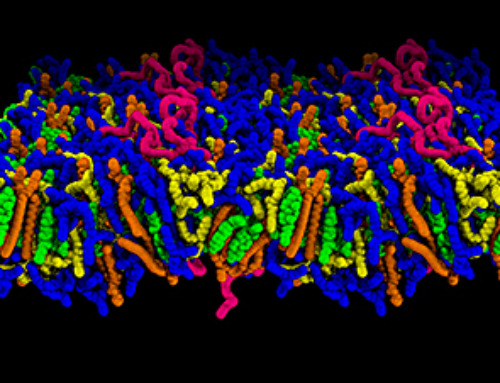Researchers have devised a magnetic control system to make tiny DNA-based robots move on demand — and much faster than recently possible.
In the journal Nature Communications, Carlos Castro and Ratnasingham Sooryakumar and their colleagues from The Ohio State University report that the control system reduced the response time of prototype nano-robot components from several minutes to less than a second.
Not only does the discovery represent a significant improvement in speed, this work and one other recent study herald the first direct, real-time control of DNA-based molecular machines.
The discovery could one day enable nano-robots to manufacture objects — such as drug-delivery devices — as quickly and reliably as their full-size counterparts. Previously, researchers could only move DNA indirectly, by inducing chemical reactions to coax it to move certain ways, or introducing molecules that reconfigure the DNA by binding with it. Those processes take time.
“Imagine telling a robot in a factory to do something and having to wait five minutes for it to perform a single step of a task. That was the case with earlier methods for controlling DNA nano-machines,” said Castro, associate professor of mechanical and aerospace engineering.
“Real-time manipulation methods like our magnetic approach enable the possibility for scientists to interact with DNA nano-devices, and in turn interact with molecules and molecular systems that could be coupled to those nano-devices in real-time with direct visual feedback.”
Image Credit: Fotolia
News This Week
Scientists Finally Solve a 30-Year-Old Cancer Mystery Hidden in Rye Pollen
Nearly 30 years after rye pollen molecules were shown to slow tumor growth in animals, scientists have finally determined their exact three-dimensional structures. Nearly 30 years ago, researchers noticed something surprising in rye pollen: [...]
NanoMedical Brain/Cloud Interface – Explorations and Implications. A new book from Frank Boehm
New book from Frank Boehm, NanoappsMedical Inc Founder: This book explores the future hypothetical possibility that the cerebral cortex of the human brain might be seamlessly, safely, and securely connected with the Cloud via [...]
How lipid nanoparticles carrying vaccines release their cargo
A study from FAU has shown that lipid nanoparticles restructure their membrane significantly after being absorbed into a cell and ending up in an acidic environment. Vaccines and other medicines are often packed in [...]
New book from NanoappsMedical Inc – Molecular Manufacturing: The Future of Nanomedicine
This book explores the revolutionary potential of atomically precise manufacturing technologies to transform global healthcare, as well as practically every other sector across society. This forward-thinking volume examines how envisaged Factory@Home systems might enable the cost-effective [...]
A Virus Designed in the Lab Could Help Defeat Antibiotic Resistance
Scientists can now design bacteria-killing viruses from DNA, opening a faster path to fighting superbugs. Bacteriophages have been used as treatments for bacterial infections for more than a century. Interest in these viruses is rising [...]
Sleep Deprivation Triggers a Strange Brain Cleanup
When you don’t sleep enough, your brain may clean itself at the exact moment you need it to think. Most people recognize the sensation. After a night of inadequate sleep, staying focused becomes harder [...]
Lab-grown corticospinal neurons offer new models for ALS and spinal injuries
Researchers have developed a way to grow a highly specialized subset of brain nerve cells that are involved in motor neuron disease and damaged in spinal injuries. Their study, published today in eLife as the final [...]
Urgent warning over deadly ‘brain swelling’ virus amid fears it could spread globally
Airports across Asia have been put on high alert after India confirmed two cases of the deadly Nipah virus in the state of West Bengal over the past month. Thailand, Nepal and Vietnam are among the [...]














Leave A Comment